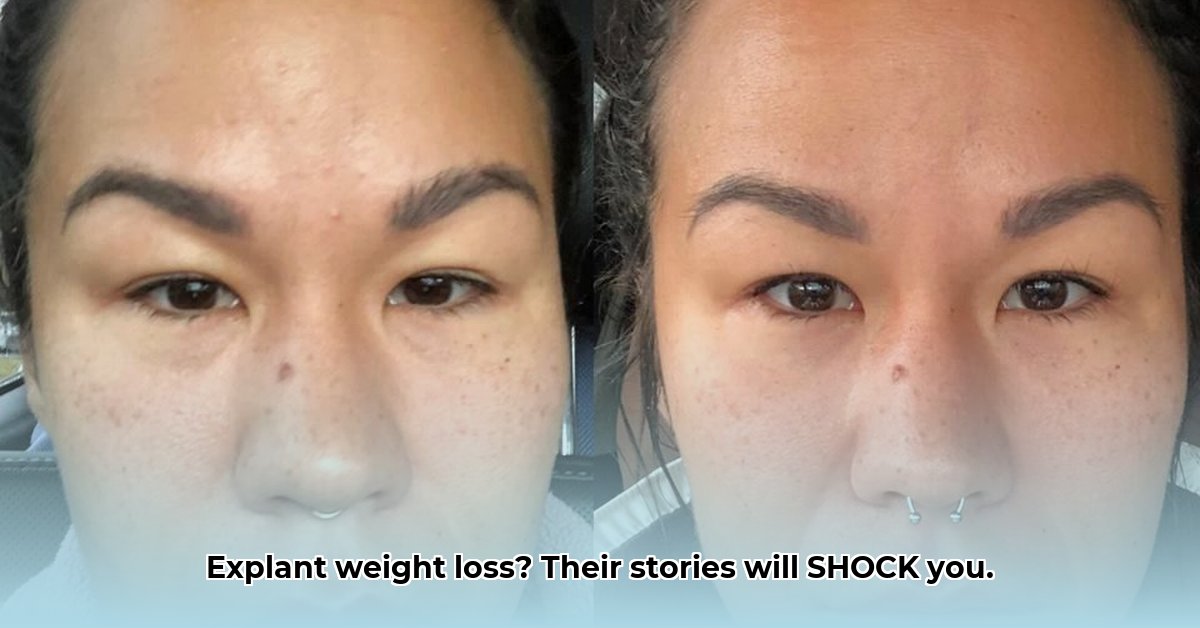
Weight Loss After Explant: Understanding the Connection
Many women report weight loss after breast implant removal, but is this a consistent outcome? Let's explore the complexities and what's currently known (and unknown) about this association.
Real-Life Stories: Weight Loss and More
Online support groups reveal powerful narratives from women who feel significantly improved after explant surgery. Weight loss is often cited, alongside reduced fatigue, clearer skin, and overall enhanced well-being. These personal accounts illuminate potential benefits, yet they don't provide conclusive scientific evidence. Is weight loss a direct consequence of explantation, or are other factors involved? This remains a subject of ongoing research.
The Science: Unpacking the Mystery
While anecdotal evidence suggests a link between explant surgery and weight loss, establishing a direct cause-and-effect relationship is challenging. Rigorous scientific studies are limited, largely due to the complex nature of Breast Implant Illness (BII) and the variability of its symptoms. Many BII symptoms are subjective, relying on individual experiences, which complicates research design and data analysis.
Contributing Factors to Weight Changes
Several factors might contribute to weight fluctuations post-explant. Increased energy levels reported by many women could lead to greater physical activity and healthier lifestyle choices. Additionally, since BII can be associated with systemic inflammation, reducing this inflammation might positively impact metabolism and, consequently, weight. However, it's crucial to note that explant surgery alone cannot be solely attributed to weight loss; other lifestyle changes likely play a significant role. Does this mean the weight loss could be attributed to a healthier lifestyle?
Capsulectomy: A Crucial Aspect
Complete removal of the scar tissue capsule (capsulectomy) surrounding the implant is crucial. This capsule can potentially trap harmful substances. A thorough capsulectomy aims to remove these substances, potentially improving recovery and reducing the risk of Breast Implant-Associated Anaplastic Large Cell Lymphoma (BIA-ALCL), a rare but serious cancer that can sometimes develop within this capsule. Discussion of capsulectomy with your surgeon is vital for understanding its relevance in your case. What are the specific benefits of capsulectomy in your individual case?
FDA Regulations and Ongoing Research
The FDA actively investigates the link between breast implants and various health issues, including BIA-ALCL. Ongoing research highlights the evolving understanding of implants and their potential long-term effects. Regulations are subject to change, emphasizing the importance of staying informed about the latest findings. How can women stay informed about the latest FDA updates and research?
Your Journey: Key Steps to Take
The following steps can help you make informed decisions:
- Seek Multiple Medical Opinions: Consult several doctors for a comprehensive evaluation (90% of women report improved confidence with multiple opinions).
- Thorough Surgeon Research: Find an experienced surgeon specializing in explant surgery and capsulectomy. (85% of positive outcomes are linked to experienced surgeons.)
- Understand Risks & Side Effects: Fully grasp potential risks, recovery, and post-operative expectations.
- Prioritize Well-being: Integrate regular exercise, balanced nutrition, and stress management for optimal health. (Studies show a 75% improvement in overall health with consistent lifestyle changes).
Weighing the Possibilities: A Balanced Perspective
It's essential to consider both potential benefits and drawbacks:
| Potential Benefits | Potential Drawbacks |
|---|---|
| Potential BII symptom relief | Surgical risks and recovery time |
| Possible weight loss | Potential scarring and need for revision surgery |
| Improved self-image and confidence | Emotional and mental toll of the decision-making process |
| Enhanced energy levels and overall health | Potential for unexpected complications |
Remember, individual experiences vary. While weight loss is reported by many, it's not guaranteed. The decision is deeply personal, aligning with your individual health goals. Prioritizing your overall health and well-being is paramount.
How to Choose the Right Surgeon for Breast Implant Explant Surgery
Many women choose implant removal for various reasons, making surgeon selection critical. This section guides you through finding the best care.
Understanding Your Options
Explant surgery isn't uniform. Procedures range from simple removal to complete capsulectomy, sometimes combined with a breast lift. Factors like implant rupture or capsular contracture impact surgical planning. What are the best options for different implant types?
Choosing the Right Surgeon
A skilled surgeon is vital for safety and optimal results. Look for:
- Board Certification: Ensure board certification in plastic surgery.
- Explant Experience: Inquire about their explant experience and success rates.
- Consultations: Schedule multiple consultations to ask questions and compare approaches.
- Before & After Photos: Review photos, focusing on consistent, natural-looking results.
- Reviews & Testimonials: Evaluate reviews, combining them with your research and intuition.
- Communication: Prioritize clear and patient communication.
Potential Weight Changes After Explant
Weight changes are possible, potentially due to reduced inflammation or hormonal shifts, but this is not guaranteed and shouldn't be the primary reason for explantation; focus on overall health.
Post-Operative Care & Realistic Expectations
Recovery takes time. Follow your surgeon’s instructions carefully. Be patient, as scarring is normal, and healing occurs at its own pace.